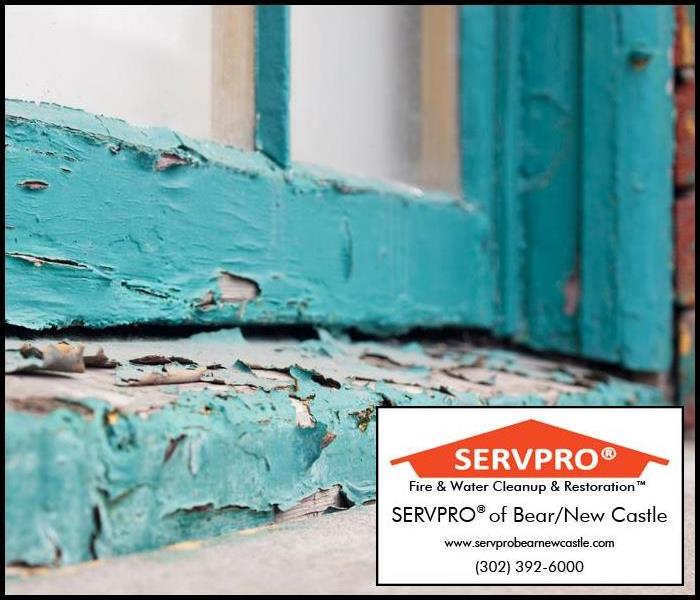Lead Exposure Home Checklist
11/21/2017 (Permalink)
 Learn what SERVPRO of Bear/New Castle, DE can do to help with a possible lead exposure or other biohazard circumstance in your home. Call us at (302
Learn what SERVPRO of Bear/New Castle, DE can do to help with a possible lead exposure or other biohazard circumstance in your home. Call us at (302
Protect Your Family from Exposures to Lead
Lead is a naturally occurring element found in small amounts within the earth’s crust. While there are some beneficial uses for lead, it can be toxic to humans and animals.
The following questions will help to determine if your family is at risk for lead exposure:
1. Was your home built before 1978?
A majority of homes built before 1978 (especially homes built throughout the 1940s through 1960s), contain lead-based paint, which can have a dangerous effect on the health of young children (under the age of six) and pregnant women.
2. Do you see walls, furniture, or window sills in your home with chipping or peeling paint?
Lead-based paint is unsafe if it peels, chips, or cracks. Harmful lead dust is created when windows, doors, edges of stairs, rails, or other lead-based painted surfaces wear away over time. You or your landlord can get your home checked for lead by hiring a trained, certified professional. Many young children put their hands or other objects covered with lead dust in their mouths, which can cause serious damage to their health. Wash children’s hands, bottles, pacifiers and toys often.
3. Do your children play in lead-contaminated soil near your home?
Soil around homes with lead-based paint may have lead chips, dust, or flakes in it. Children can accidentally swallow this soil while playing outdoors, or the soil may be tracked indoors from shoes onto carpet and floors, where children can eventually come into contact with it. Teach children to wipe and remove their shoes, as well as to wash their hands, after playing outdoors.
4. Do you store food in imported pottery that contains lead?
Imported pottery and dishware usually contain lead. To protect your family from lead poisoning, use imported pottery only for decoration, and keep food and drinks in other safe, storage containers.
5. Do you work with lead in your job?
You may be exposed to lead on the job if you work as a painter, ironworker, construction worker, cable splicer, automobile radiator repair mechanic, firearms instructor, metal shop worker, stained glass artist or battery maker. If you work in a lead-related industry, change your work clothes before entering the home, wash your work clothes separately from the clothes you wear around your family, and remove your shoes before entering your home, as lead can be tracked indoors onto carpets, floors, and furniture.
Should I Have My Home Tested
If you have answered yes to any of these questions, have your home tested by a certified professional by contacting 1-800-424-LEAD (5323) or visiting https://www.epa.gov/lead. If you rent your home, find out if your landlord has checked your home for lead. Have your children tested for lead poisoning by asking your doctor, or health specialist at a Head Start center, to perform a simple blood test (Medicaid should pay for the cost of the lead poisoning test).
Learn what SERVPRO of Bear/New Castle, DE can do to help with a possible lead exposure or other biohazard circumstance in your home. Call us at (302) 392-6000.
Biohazard Cleanup and Restoration
Exposure to biological and chemical contaminants can pose serious health consequences. A failure to properly remove such substances can contribute to unhealthy and dangerous environments. SERVPRO of Bear/New Castle, DE is trained to safely remove biohazards and dispose of them properly in accordance with OSHA and health regulations.
Equipped with the necessary safety apparatus and cleaning products, we can help transform these unhealthy environments back into clean, safe homes and offices.
Please refer to our Biohazard Emergency Tips - Until Help Arrives Guide and follow these tips to protect yourself and your property.
Call SERVPRO of Bear/New Castle, DE at (302) 392-6000 for all your biohazard cleaning, water damage, fire damage and mold remediation needs!






 24/7 Emergency Service
24/7 Emergency Service